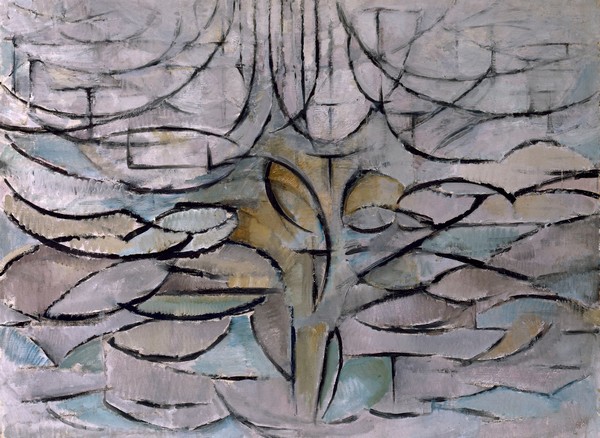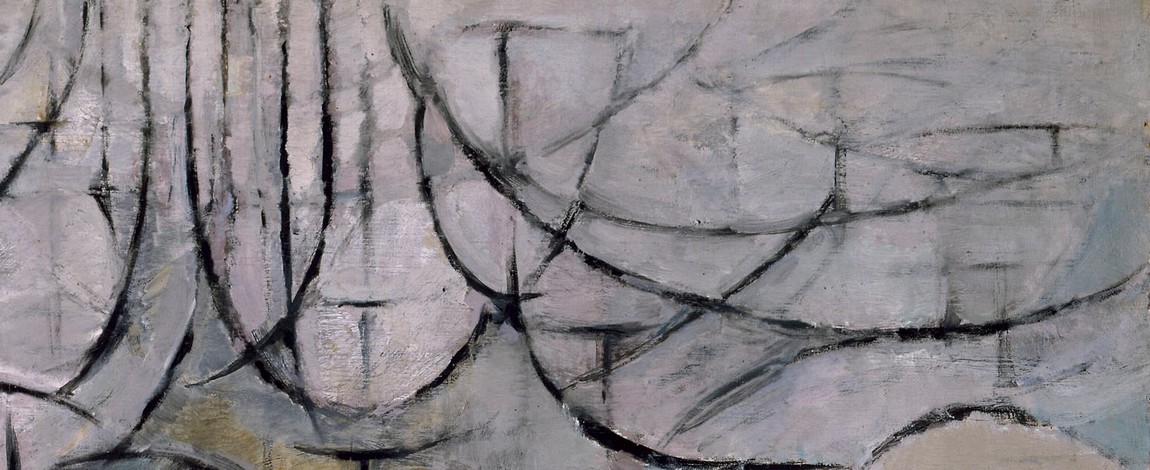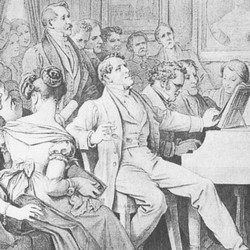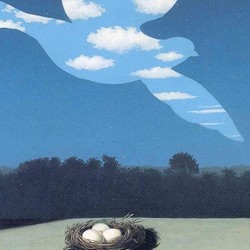
Occasionally I hear phrases from a Lied in my head, and they bother me until I identify it, I told you about this. It also happens to me that I hear some music that reminds me of a Lied, and, again, I must identify it, as I also told you. Another variation on this theme is when I hear a Lied that reminds me of another song. That's what happened to me a few days ago, when I was choosing a version of Seligkeit to share with you.
I was listening to different versions of this song, and since I was at it, I was playing around with the records. And then I heard a song so beautiful that I set aside Selikgeit for a while. Actually, this song, with a short and easy to remember name, An die Apfelbäume, wo ich Julien erblickte, [To the apple trees, where I saw Julia], not only was beautiful, it was original and had a very modern way of starting. And then I thought: what reminds me of this beginning? But I had to go back to Seligkeit.
When I returned to An die Apfelbäume (if you don't mind, I shorten the name), I realized again that it recalled me something; I didn't know what, but it was composed much later. After a couple of listenings, I realized that I was looking for a song from the 1950s (from the 20th century, I mean). And that voice… Elvis? So, I went over Elvis Presley's songs. But I wasn't able to find it, until I thought: Elvis, or maybe Roy Orbison? Let's listen to him! And this time I immediately located the piece I was looking for: Unchained Melody.
Unchained Melody is a song by Alex North with words by Hy Zaret, written for the 1955 film Unchained, directed by Hall Bartlett and set in a prison. I don't know if the film was successful, but the song became hugely popular. There are many covers since then, including those by Elvis Presley and Roy Orbison, although the best known is that of the Righteous Brothers. I'm sure you know the song, but, just in case the name is not enough, I link you here to the scene of the film. It's sang by Todd Duncan, the baritone who premiered the opera Porgy & Bess and was one of the first Afro American singers to appear on stage in opera houses, with roles such as Tonio in Cavalleria Rusticana and Escamillo in Carmen.
I must admit that once I heard both songs in a row, Unchained Melody and An die Apfelbäume, I found the beginnings to be less similar than I thought. There is something that binds them together, perhaps the atmosphere, but they are not exactly like two drops of water. Anyway, beyond the anecdote, I really like An die Apfelbäume and wanted to share it with you. And how could I miss the chance to have Elvis and Orbison in the title of an article on Liederabend?
Schubert composed An die Apfelbäume in May 1816. In those weeks, he was immersed in the poetry of the Göttinger Hainbund, a literary circle founded in Göttingen in 1772; especially, at that time he was working with verses by Ludwig Hölty, the most prominent member of the circle. Our poem, written in 1775, has two titles: An die Apfelbäume, wo ich Julien erblickte and An die Apfelbäume, wo ich Laura erblickte. Julien and Laura were the same person, Anna Juliane Hagemann, a young woman whom Hölty met at the age of seventeen, before he went to college. For her, he must have been just an acquaintance; she married and made her life, surely alien to the love (and poetry) that she inspired on the young man. He idealized her, and often referred to her in his verses as Laura, as Petrarch's love (for example, he does so in Seligkeit).
In the first two stanzas of the poem, the poetic voice speaks in the first person of a first love, of a sunset and of the image of the beloved. Schubert's music, strophic, conveys the excitement of the lover, the “anxious, wild, and ecstatic frenzy.” In the third stanza, there's a third person who observes this scene, or a similar one. Music changes radically and becomes solemn, as corresponds to the lovers' pledge of eternal love. Immediately, however, the fourth stanza begins with a vocal line very similar to the first two, while the piano, as restless as it was in the first stanza, now becomes melancholic, like the verses.
As I told you, it's a gorgeous Lied, in my opinion; I don't understand why we all kept it hidden. I hope you like it, especially in the perfect performance by Wolfgang Holzmair and Ulrich Eisenlohr, the same interpreters of last week's Seligkeit.
Ein heilig Säuseln, und ein Gesangeston
Durchzittere deine Wipfel, o Schattengang.
Wo bang’ und wild der ersten Liebe
Selige Taumel mein Herz berauschten.
Die Abendsonne bebte wie lichtes Gold
Durch Purpurblüten, bebte wie lichtes Gold
Um ihres Busens Silberschleier;
Und ich zerfloß in Entzückungsschauer.
Nach langer Trennung küsse mit Engelkuß
Ein treuer Jüngling hier das geliebte Weib,
Und schwör’ in diesem Blütendunkel
Ewige Treue der Auserkornen.
Ein Blümchen sprosse, wann wir gestorben sind,
Aus jedem Rasen, welchen ihr Fuß berührt,
Und trag’ auf jedem seiner Blätter
Meines verherrlichten Mädchens Namen.
A holy rustling and the sound of song
vibrate through the tops of your trees, O shaded path,
where, anxious and wild, the ecstatic frenzy of first love
intoxicated my heart.
The evening sun shook like bright gold
through purple flowers, shook like bright gold
around the silver veil on her bosom;
and I dissolved into a shudder of delight.
After a long separation come kisses like those of angels:
a faithful youth here with his beloved wife;
and he swears in the darkness of the blossoms
eternal fidelity to his chosen one.
A flower might bloom when we are dead,
from every lawn which her foot disturbed.
And may each blade of grass bear
my glorious maiden's name.
(translation by Emily Ezust)


















Comments powered by CComment